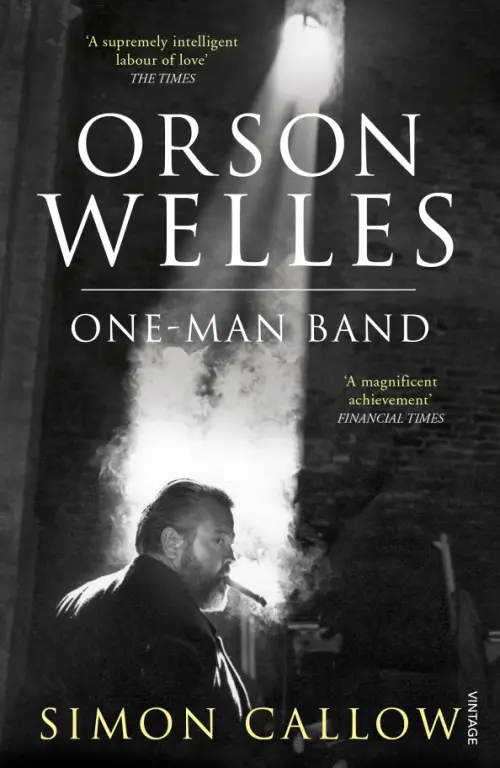В третьем томе биографии Орсона Уэллса Саймон Кэллоу вновь всесторонне и подробно исследует жизнь одного из самых неоднозначных кинорежиссёров двадцатого века. Он внимательно изучает не только триумфы и неудачи Уэллса, но и места его работы – театр, радио, кино, телевидение – везде его радикальный и оригинальный подход открывал новые направления и возможности.
Книга начинается с добровольного изгнания Уэллса из Америки и его осознания того, что он может успешно существовать только как независимый режиссёр. К 1964 году он снял «Отелло», работа над которым заняла три года, «Мистера Аркадина», самую большую загадку в его творчестве, и свой шедевр «Фальстаф» («Полуночные колокола»), а также известную «Печать зла». Попутно он освоил зарождающееся телевидение и написал несколько сценических пьес, в том числе «Моби Дик», которую историки театра считают одной из основополагающих постановок века. При этом его личная жизнь была столь же драматичной, как и профессиональная.
Третий том книги Саймона Кэллоу “Orson Welles. Volume 3. One-Man Band” заинтересует не только поклонников творчества кинорежиссёра, но и тех, кому по душе жанр биографии.
Книга на английском языке.
In One-Man Band, the third volume in his epic survey of Orson Welles’ life and work, Simon Callow again probes in comprehensive and penetrating detail into one of the most complex artists of the twentieth century, looking closely at the triumphs and failures of an ambitious one-man assault on one medium after another – theatre, radio, film, television, even, at one point, ballet – in each of which his radical and original approach opened up new directions and hitherto unglimpsed possibilities.
The book begins with Welles’ self-exile from America, and his realisation that he could only function happily as an independent film-maker, a one-man band; by 1964, he had filmed Othello, which took three years to complete, Mr Arkadin, the biggest conundrum in his output, and his masterpiece Chimes at Midnight, as well as Touch of Evil, his sole return to Hollywood and, like all too many of his films, wrested from his grasp and re-edited. Along the way he made inroads into the fledgling medium of television and a number of stage plays, including Moby-Dick, considered by theatre historians to be one of the seminal productions of the century. Meanwhile, his private life was as dramatic as his professional life.
The book shows what it was like to be around Welles, and, with a precision rarely attempted before, what it was like to be him, in which lies the answer to the old riddle: whatever happened to Orson Welles?
У этого товара нет ни одного отзыва. Вы можете стать первым.



